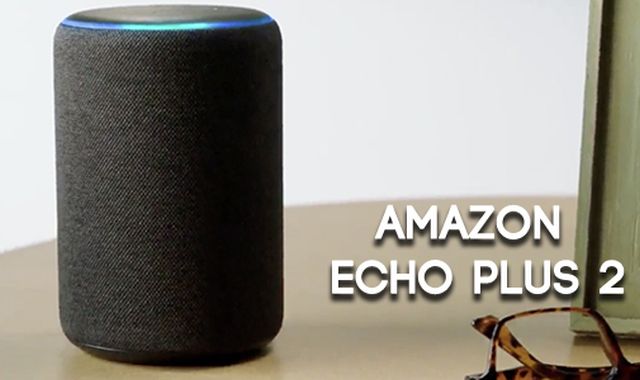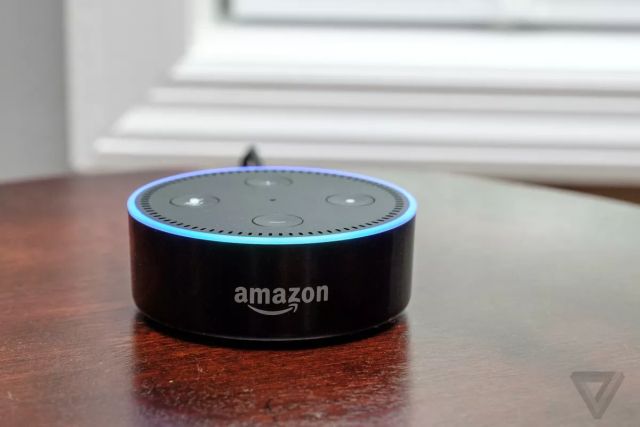
by admin | May 25, 2021 | Markets, Technology
 By Nishant Arora,
By Nishant Arora,
New Delhi : Hey Alexa! Please play “Bhaja Govindam” by M.S. Subbulakshmi, goes the command every morning at my home and Alexa takes no time in obliging, playing the song by the legendary Carnatic vocalist as breakfast begins to roll.
This has become a routine at millions of Indian homes, indicating a clear trend about voice becoming the next conversational platform between people and devices.
As we head toward a world where data-driven machine intelligence powers conversations between brands and consumers, Indian consumers are now ready for this, frequently using smartphones to interact with brands and coordinate tasks.
According to Forrester, mobile penetration has allowed rapid, leapfrogging acceleration among metropolitan Indian online adults in the uptake of wearable devices and other smart technology.
Nearly 54 per cent Indians now use at least one wearable device. The smart home is at a similar turning point: 30 per cent use a smart TV, 16 per cent use a voice assistant speaker like Alexa-rich Amazon Echo or Google Assistant-driven Home, and 36 per cent use smart home devices like Internet-connected thermostats or home audio systems.
According to Meenakshi Tiwari, Forecast Analyst at Forrester, most of the digital consumers in India today are mobile consumers, doing multi-tasking on the go.
“Voice has much bigger role to play in the circumstance, which is further verified by the fact that 28 per cent of search queries in India are done by voice, and Hindi voice search queries are growing at over 400 per cent year on year,” she told IANS.
It gives clear indication that voice will play a bigger role in India’s digital space in near future.
“Smart speaker will also play critical in this direction which is evident from their increasing shipment and time spent by consumer on it,” Tiwai added.
According to market research firm International Data Corp (IDC), the smart speakers’ category in India, led by Amazon, grew 43 per cent in the second quarter of 2018.
“I personally believe that voice as a platform is going to lead the next wave of content searches, social conservation, and eventually, it will also become the medium of commerce, said Jaipal Singh, Senior Analyst, IDC India.
We already have voice-enabled devices which help us set routines, automate home appliances and provide on-demand information.
“In terms of devices install base in 2018, it has significantly improved as vendors have shipped a set of new devices ranging from mobile phones, ear pods, TVs and smart speakers with voice assistants feature enabled on them,” Singh told IANS.
This novelty feature is really attracting a wide segment of users and obviously, millennials and Gen Z are leading the adoption as they are more comfortable to experiment with new technology.
According to Singh, smart speakers are very popular among the kids who mostly use those for educational content, listening mythological stories quizzing and playing games.
“However, playing music and setting alarms, asking for information from the internet are some of the popular tasks that Indian users prefer asking to voice assistants,” the IDC analyst said.
There are still concerns on users spending time with voice assistants as it is yet to get the desired traction in India.
However, refined use cases with localised experiences are expected to lead the desired growth of voice-based devices in the coming years, the experts stressed.
(Nishant Arora can be reached at nishant.a@ians.in)
—IANS

by admin | May 25, 2021 | Branding, Business, Markets, SMEs, Technology
 By Nishant Arora,
By Nishant Arora,
New Delhi : Smart home speakers are steadily gaining ground in India and Amazon’s Echo range has been appreciated the most so far, followed by Google Home.
Led by Amazon Echo, with 59 per cent market share, the smart speakers category in India grew 43 per cent in the second quarter (July-September) this year, according to an International Data Corporation (IDC) report.
Analysts see the nascent smartphone market in India growing beyond entertainment and Amazon, with its top-of-the-line voice-based Alexa platform, has brought the second iteration of its Echo smart home speaker to the country that is able to control connected devices around you and does not need third-party support.
The Indian smart home devices market which consists of connected lights, smart speakers, connected thermostats, smart TVs, home monitoring/security products and digital media adapters saw a healthy year-on-year growth of 107 per cent to hit 1.4 million shipments in the second quarter.
Let us see what the Rs 14,999 All-New Echo Plus (2nd Gen) with a smarter Alexa has to offer.
The top has four buttons — two to adjust volume, one to wake up Alexa and one mute button — along with seven ergonomically-placed microphones.
This time, the 780-gram device goes beyond reading daily news, playing music, announcing weather or ordering food.
The All-New Echo Plus comes with a built-in smart hub that helps you set up compatible Zigbee-enabled smart home devices directly, just using your voice.
Zigbee is a wireless technology developed to enable low-cost, low-power wireless machine-to-machine (M2M) and IoT (Internet of Things) networks.
Just ask Alexa to discover your devices and begin controlling compatible lights, plugs, locks, thermostats, sensors and in-wall switches.
For example, Echo Plus connected directly to Philips Hue light-bulbs.
Insert the bulb into a receptacle and tell Alexa to discover new devices. Within no time, she will throw up the name of the device (in this case, the light-bulb).
Start controlling the device, like “switch on the light Alexa”.
You can also control compatible lights and plugs from Syska, TP-Link and Oakter.
With seven microphones, beam-forming technology and noise cancellation, Echo Plus heard us from almost all directions.
Housing new speakers powered by Dolby and enhanced back volume, the bass felt stronger and the sound crisp and clear.
One feature that is worth mentioning is the equaliser (EQ) feature that allows users to personalise sounds by adjusting the bass, mid-range and treble.
Just ask Alexa to increase or decrease a specific band like “turn up the bass” or “decrease the treble” and she does it for you.
We could also made adjustments through the Alexa app.
The new Echo Plus also has a temperature sensor, making it possible for Alexa to tell the temperature in any room (it works with a compatible smart home thermostat).
With the device, call or message your friends and members in the family who also has an Echo device or the Alexa App.
Simply ask “Alexa, how do I set up calling?” and get started.
What doesn’t work?
Alexa is getting smarter by the day and we will soon have more local functionalities in it. At the moment, the device gives the best smart speaker experience.
Conclusion: From a tall, metal cylinder look in the first generation, Echo Plus has come a long distance in terms of look and feel. The second-generation Echo Plus with a far more intelligent Alexa is a real upgrade if you have experienced the first generation Echo.
(Nishant Arora can be contacted at nishant.a@ians.in)
—IANS

by admin | May 25, 2021 | Branding, Business, Corporate, Corporate Buzz, Large Enterprise, Marketing Basics, Markets, Online Marketing, Technology
 San Francisco : In a rare collaboration, Microsoft and Amazon have come to an agreement wherein Cortana users will have access to Alexa and vice-versa.
San Francisco : In a rare collaboration, Microsoft and Amazon have come to an agreement wherein Cortana users will have access to Alexa and vice-versa.
According to a report in the New York Times, the two rival tech firms have been coordinating behind the scenes for the past year to make artificial intelligent assistants Alexa and Cortana communicate with each other.
The partnership will allow people to summon Cortana using Alexa, and vice versa, by the end of the year.
In simpler words, someone using an Alexa device will have to say “Alexa, open Cortana” to get to talk to Microsoft’s digital assistant, and someone using Cortana will have to say “Cortana, open Alexa” to talk to Amazon’s.
According to the report, this cross-platform integration will also allow Alexa users to access some of the more unique aspects of Cortana.
Microsoft has built its digital assistant directly into its office products and now Alexa will get that functionality via Cortana.
Amazon, Apple (with Siri), Microsoft and Google (with Assistant) are pouring huge amounts of money into making digital assistants smart.
While Amazon, Apple and Google have already launched smart speakers, Microsoft is preparing to launch a Cortana speaker with Harman Kardon and push its digital assistant into cars, thermostats and more devices.
After a partnership with Microsoft Indian-origin CEO Satya Nadella, Amazon CEO Jeff Bezos also welcomed Apple and Google to offer similar integration saying he would support it.
“There are going to be multiple successful intelligent agents, each with access to different sets of data and with different specialized skill areas,” Bezos said.
“Together, their strengths will complement each other.”
Nadella also appears to welcome the idea of collaboration with Apple and Google, saying “Hopefully, they’ll be inspired by it”.
—IANS



